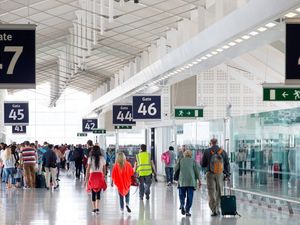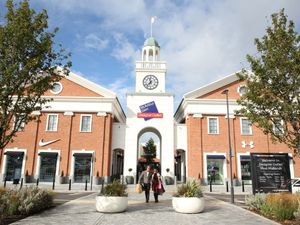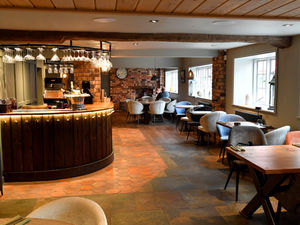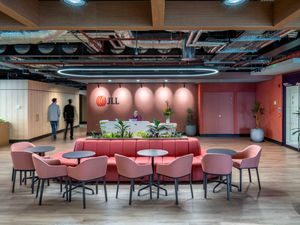Appetite for the high street in West Midlands remains but it must continue to reinvent itself
A strong majority of West Midlands shoppers still retain an appetite for the high street, according to new research.
A survey of 2,000 adults showed more than 7 in 10 (73 per cent) of those in the West Midlands would feel sad if their local high street was no longer an option for shopping.
But the positive data came with concerns for the future too and many respondents to the survey, from Accenture, fear the high street is no longer relevant and in desperate need of change.
Kelly Askew, Retail Strategy & Consulting Lead, at Accenture, said: “The future of the high street has been in question in recent years, but for now, stores are clearly still in fashion.
"Many retailers are still placing their bets on bricks-and-mortar, but there are warnings that the high street is in need of a reinvention if it’s to survive.
“At a time when shoppers are being even more selective about where and how they spend their cash, the future of the UK high street lies in its relevance and ability to meet local needs.
"For businesses, this means a focus on affordability, customer experience, and tailoring their offer to local demand.
"Technologies play an important role here – whether that’s using data analytics to determine the store layout and what they stock, or investing in AI and automation to enhance the store experience whilst enabling staff to be more efficient.”
The good news is business chiefs and retail experts are on a mission to support local shops and ensure town centres evolve and thrive after the challenges of the pandemic.
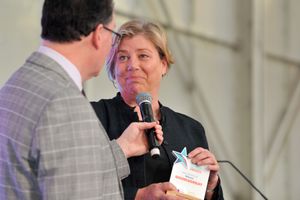
Among them is Sally Themans, the driving force behind Love Bridgnorth.
"High streets are absolutely at the heart of the community," she says. "If our high streets were to close down and become dead and lifeless, then it would spell disaster for those communities.
"It's not just about commerce. The high street is where people come together for events and to meet.
"So we have to do all we can to look at alternative uses to keep them busy as well as helping small independent and large retailers remain relevant and viable on our high streets.
"And, of course, if people want the high street to thrive, we have to move away from online deliveries, which I know is really hard. As much as we can, we must try to learn to use local providers who, in turn, also need to keep in step with what customers are demanding."
A quarter of respondents (25 per cent) said they will always want to shop on their local high street, and the same percentage said they are unlikely to stop visiting their high street in the next year.
However, over half of respondents (56 per cent) in the region felt that the high street doesn’t have everything that they need to do their weekly shop.
They also agreed that the high street was no longer relevant and needs to change (53 per cent).
If a store on the high street which was part of respondents’ regular shopping routine were to close, over half (56 per cent) said that they would shop online instead, compared to over a third that would either switch to another high street brand (38 per cent) or drive to find the same shop somewhere else (35 per cent).
Concern over the high street’s relevance could explain why 33 per cent warned they may stop shopping there in the next five years, increasing to almost 38 per cent in the next 10 years.
When those in the West Midlands were asked what they use their high street for, food shopping was by far the most popular option (77 per cent), followed by eating and drinking (48 per cent).
Almost half (47 per cent) said they would like to see more food shops on their high street, while the majority said that they would like to see more high street banks and post offices (54 per cent), clothes shops (59 per cent) and general retail stores (65 per cent). Office and working spaces (18 per cent) and beauty services (16 per cent) were the least popular outlets to see more of.
For bosses at retail locations across the county, creating a shopping experience – to meet those wide demands – is vital moving forward.
But many say they are seeing positive signs. In West Bromwich, for the pedestrian high street, there were footfall figures of 165,000 people in March.
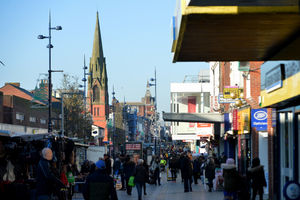
Lisa Hill, West Bromwich Town BID Manager, said: "From our point of view, the town centre was affected, like everywhere else.
"But the figures we are seeing, monthly, is that there's people do still want to get out and shop. Of course, people still do their online and that will continue but they also do want to get out of the house.
"As a BID we look to put on events to increase footfall for the town centre and shopping centres, such as our BID area, providing an attraction to the high street, getting the kids out, so families will spend in the shops.
"Our events will kick in from June until September and hopefully that makes the high street even more welcoming and give families more to do. As long as it helps the businesses, we will keep doing that because it's a key project of the BID."
In Birmingham, Michelle Baker, Manager at Visit Royal Sutton Coldfield BID, added: “It is not surprising that so many people in the West Midlands have responded positively to their local high street in this survey, because that has been our experience in Sutton Coldfield town centre and we believe the high street is very much here to stay.
“It’s clear that with changing shopping habits, town centres and high streets must evolve and adapt in order to appeal to local residents and stay relevant as a local shopping destination.
“Since we launched our Visit Royal Sutton Coldfield BID brand last year, we have introduced a new monthly Farmers and Craft Market which brings the town centre to life once a month for visitors to enjoy live music, entertainment and artisan businesses."
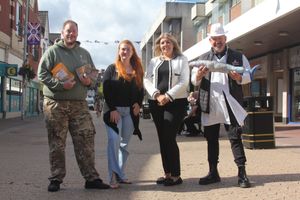
“We have also delivered well-attended events from character ‘meet and greets’ with The Transformers, T-Rex and Bluey to our King’s Coronation Celebration which attracted thousands of visitors into the town centre.
“We are currently finalising our plans for an outdoor cinema and summer car show, to repurpose the town centre and bring it to life.
“Retail is certainly changing, and the shift is now towards leisure, with town centres being a place to meet, dwell and enjoy. As a private organisation funded by local businesses, we are doing our utmost to support the town centre and local businesses.”
The fact nearly 50 per cent are drawn to the high street for food and drink is not lost on Mrs Themans.
She and husband Johnny, have their own business – Good2Great – and recently set up a co-working space in Bridgnorth town centre to attract more visitors to to the town.
She believes hospitality is a key part of bringing people in to areas such as Bridgnorth.
"High streets are moving towards experiences. We have seen it in London, Camden Market, where it works and it's filtering out to places like Bridgnorth, which can only be great news."

